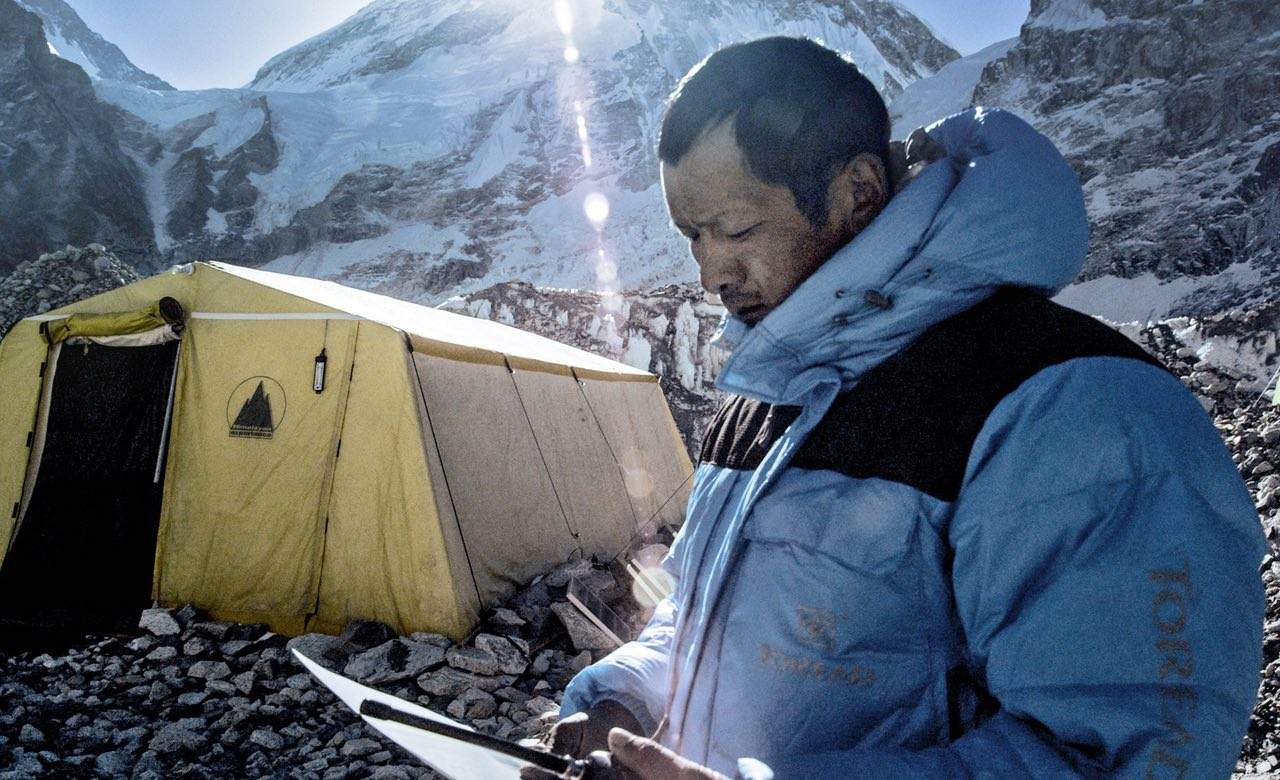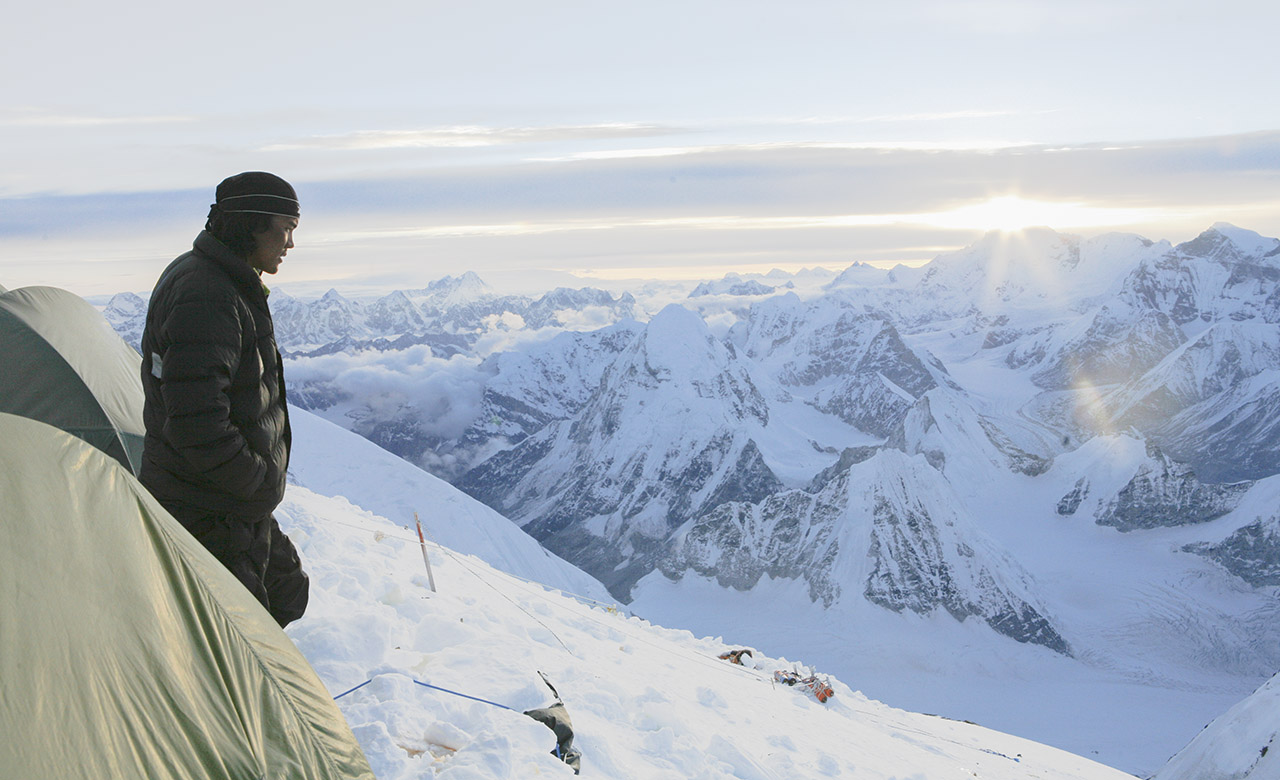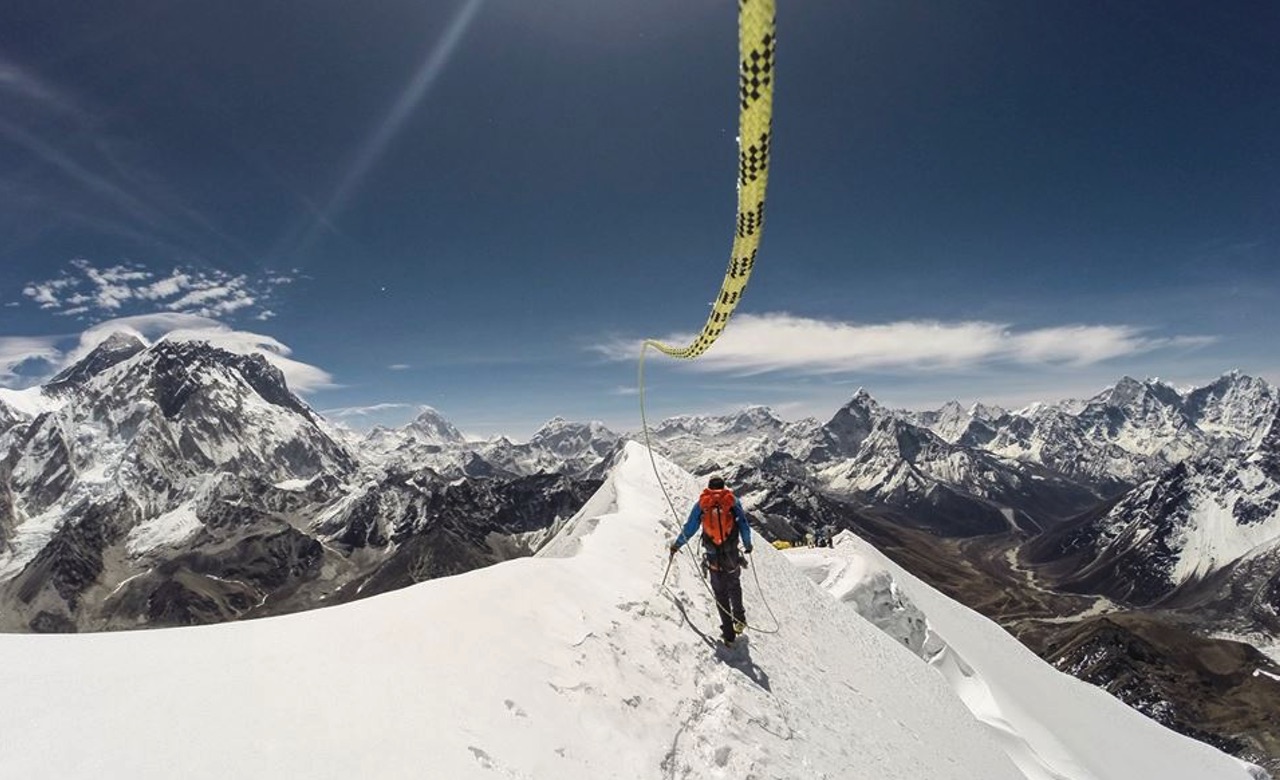Trouble at 17,000 Feet: Behind the Scenes of Sherpa with Director Jennifer Peedom
We speak to the filmmaker behind one of the year's best documentaries.
We've all heard tales of scaling Mount Everest – of the resilience and fortitude it takes to reach the highest point on Earth. But like so many other epic stories of man versus nature, it turns out the truth is a little bit more complicated. For every climber to make it to the summit, a team of Sherpa guides haul gear, food and oxygen up and down the treacherous terrain, risking their lives to help foreign visitors tick an item off their bucket list.
Australian documentarian Jennifer Peedom is no stranger to the mountain or the Sherpa community, having worked as a camera operator on numerous Everest documentaries including the Discovery Channel's critically acclaimed Everest: Beyond the Limit. But in 2014 she returned to make a different kind of Everest movie, one that explored the growing tensions between the Sherpas, their employers and their wealthy Western patrons.
Of course, Peedom couldn't have foreseen was what took place that year on April 14. An avalanche in the Khumbu Icefall claimed the lives of 16 guides in a single day — and suddenly all that resentment boiled over. The footage Peedom captured makes for some of the most incredible and uncomfortable viewing you'll experience in cinemas this year: a tense, troubling doco about industrial action at more than 17,000 feet.
After considerable attention on the international festival circuit, including a win for Best Documentary at the BFI London Film Festival, Sherpa is now screening in select cinemas around Australia. In the lead up to the release, we spoke to Peedom about her intentions in making the film, delved into the uncomfortable whitewashing of Everest narratives, and discussed what needs to change on the mountain going forward.
SHERPA ISN'T A FILM ABOUT CLIMBING EVEREST
"I had access to the Sherpa community, and when you're a filmmaker, access is everything," explains Peedom. "When you're looking at what stories you want to tell, you often look in your own backyard, and I was looking right under my nose at a story that I knew pretty well, and felt needed to be told. It wasn't about going back to Everest — that was the last thing I felt like doing. But I felt really motivated to tell this story."
"Ultimately it's an industrial dispute film. I never set out to make a climbing film. It was always a film about a people, and a culture, and an inherent conflict within a relationship. Everest was the backdrop. The ascent of Everest formed the spine of the story through which we could explore those tensions. And then when the avalanche happened, that became a different vehicle to explore those tensions."
DISRUPTING THE HERO NARRATIVE
For all the movies made about Everest, it's rare to see the Sherpa depicted as anything other than bit players. "It doesn't suit our ego," says Peedom. "It doesn't suit that hero narrative to say that someone carried all my stuff through the icefall, my oxygen was carried all the way to camp three, and I only had to carry the one bottle I was using, and blah blah blah. So much of the work, and so many of the risks, are taken by somebody else."
"I spoke to this American guy who said that on average, five or six people are employed to get one person to the summit. That's kind of embarrassing to admit. People don't want other people to know that. And maybe it's a female perspective, but I just got sick of all these men taking credit for what other people had done."
WHAT NEEDS TO CHANGE?
"David Michôd — the guy who directed Animal Kingdom, who is a really good friend of mine — said that what he loved about the film is how morally complex it is, and that was something that we worked really hard to achieve," says Peedom. "It would have been much easier to make goodies and baddies, but it just didn't feel honest. It would be wrong for me to say that everyone who goes to climb Everest is an idiot, because it's not the truth. Not only that, but it would be irresponsible, because the Sherpa community rely on that income."
"One of the Sherpas says at the beginning of the film that everyone used to do the work together, the foreigners and the Sherpas. But now the Sherpas do all the work, and I guess that's what needs to change. Foreigners need to go with their eyes open. Don't bury your head in the sand about the fact that you're asking other people to take risks on your behalf. Be cognisant of that, and put pressure on your expedition leader to make sure they have proper insurance, and to make sure they're not carrying triple loads. And if the worst does happen and a Sherpa is killed, you probably do have a responsibility for his children's future and his family."
Sherpa is in cinemas now. Read our full review here.








